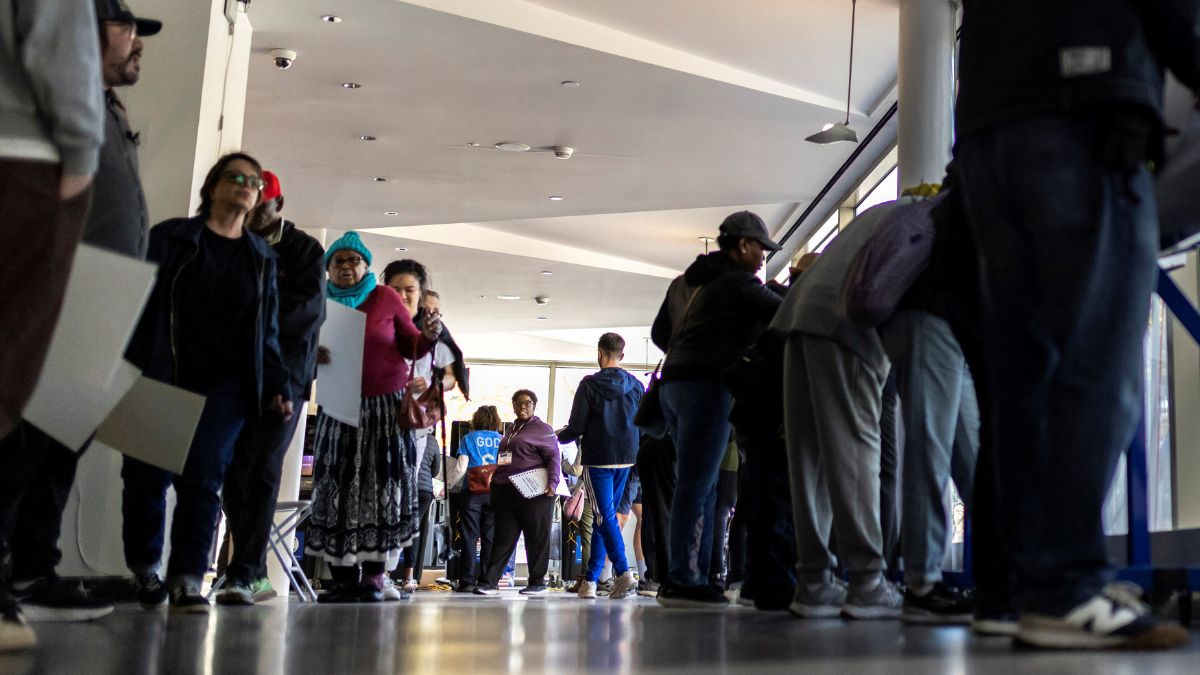The approach of the 2024 US presidential election has stirred significant stress among Americans, as highlighted in multiple studies and reports.
The American Psychological Association’s (APA) “Stress in America 2024: A Nation in Political Turmoil” survey reveals that politics has become the leading source of stress for a majority of Americans.
Impact of political anxiety felt across party lines
An overwhelming 69 per cent of US adults report feeling stressed by the upcoming election, according to the APA. Dr. Lynn Bufka, clinical psychologist and APA’s deputy chief of professional practice, notes, “Republicans, Democrats are actually united in having concern about the future of the nation. And they’re not sure that the country’s system of checks and balances is actually working the way it should be working.”
The stress extends across party lines: 80 per cent of Republicans, 79 per cent of Democrats, and 73 per cent of Independents list politics as a significant source of anxiety. This widespread concern about the election’s implications is a departure from past elections, when political stress remained more polarised.
For many, the anxiety isn’t limited to concerns about the election results but extends to potential fallout. The APA survey shows that 54 per cent of adults have little to no trust in the US government, while 41 per cent have even considered moving to another country as an escape from the political climate.
Furthermore, 46 per cent of respondents say they wouldn’t consider dating someone with opposing political views, suggesting that politics now influences Americans’ personal relationships in profound ways.
Fear of misinformation & political violence
The spread of misinformation has emerged as a major worry, with 82 per cent of respondents concerned that Americans are basing their values and opinions on unreliable information. This fear is often amplified by the saturation of political discussions on news channels and social media platforms, which frequently highlight divisive issues.
Many fear that these divides could lead to political violence following the election results, especially given heightened rhetoric and events in recent years . As Bufka states, “Oftentimes people are feeling concerned or stressed when they’re not seeing politicians working on the issues that really make a difference in their day-to-day lives.”
Political stress has reached a level reminiscent of the 2020 election, though significantly higher than 2016. Alongside other everyday stressors like money, health, and family responsibilities, the political climate appears to exacerbate Americans’ stress to an unprecedented degree.
In August 2024, a survey by a mental health care company found that 79 per cent of participants reported that the election caused them daily anxiety. The continuous media focus on the election has led some Americans to feel “as though their lives are at stake in this election.”
Coping mechanisms as Election Day comes
To address election-induced anxiety, various mental health experts have suggested strategies, recognising that “a big event should prompt big feelings.”
The Atlantic quoted Martha Nussbaum, a philosopher who believes emotions “reflect inner judgments and evaluations,” suggesting that anxiety surrounding the election may be an appropriate response, given the perceived stakes. “Surviving the remaining days until November 5 requires not simply turning off those emotions, but paying attention to what they are telling us,” she notes.
Experts recommend numerous coping mechanisms to alleviate election-related stress. Grounding techniques like the 5-4-3-2-1 method can help people stay present by focusing on their immediate surroundings, rather than fixating on future worries.
Also Read: How the US presidential elections could impact the economy and stock market
Building a self-care routine, including meditation, mindfulness, exercise, and deep breathing, has proven effective in calming the nervous system. Other suggestions include challenging “all-or-nothing” thinking, limiting caffeine and alcohol consumption, and setting healthy boundaries in social settings, particularly on social media.
Bufka believes that Americans are capable of uniting beyond political divides but may have “gotten ourselves sort of into our own bubbles in a way that we’re not sure how to get out of them.”
A new hope?
Despite the turmoil, the APA’s survey reveals a ray of optimism — over 60 per cent of Americans report feeling hopeful that the election will bring positive changes. This sentiment could potentially transform stress into a motivator for civic engagement, as evidenced by the fact that 80 per cent of respondents intend to vote.
Bufka adds that, despite their frustrations, many Americans are eager to see politicians address fundamental community needs, such as safe neighbourhoods, job security, and robust infrastructure.
Also Read: Just how racist and misogynist was Donald Trump’s New York City rally?
For those struggling with overwhelming anxiety, reaching out to mental health professionals remains a strong option. Progressive muscle relaxation (PMR), a technique that involves tensing and relaxing muscles from head to toe, can also be an effective way to release physical tension associated with stress.
Additionally, Americans are encouraged to reduce engagement with heated political discussions on social media, which often heightens anxiety and leads to burnout.
Also Watch:
With inputs from agencies


)

)
)
)
)
)
)
)
)



